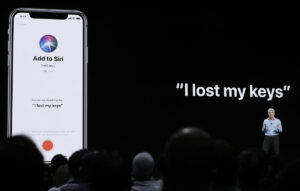Apple to Settle Siri Eavesdropping Lawsuit for $95 Million
In a striking development for privacy advocates and Apple users alike, Apple Inc. has agreed to a $95 million settlement in response to a significant lawsuit alleging that its virtual assistant, Siri, was eavesdropping on users without consent. This settlement, filed in a federal court in Oakland, California, aims to resolve claims that date back over five years, highlighting the complex intertwining of technology, privacy, and consumer trust in today’s digital age.
The Allegations Against Apple
The lawsuit outlines serious accusations that Apple secretly activated Siri on its devices, including iPhones, to record conversations for over a decade—even when users didn’t explicitly initiate the action by saying “Hey, Siri.” Alarmingly, it is alleged that some of these recordings were shared with advertisers, allowing them to target consumers based on intimate details gleaned from private conversations. This situation raises critical questions about the implications of data privacy and the potential misuse of technology, drawing scrutiny on a tech giant that has frequently marketed itself as a protector of consumer privacy.
Apple’s Privacy Commitment Under Fire
These allegations contradict Apple’s long-promoted stance on user privacy, a message that CEO Tim Cook has often described as a battle for “a fundamental human right.” The company’s commitment to safeguarding personal information has been a cornerstone of its branding strategy. It’s particularly noteworthy that, despite this settlement, Apple has not admitted any wrongdoing, a tactic common among corporate settlements aimed at maintaining reputation while mitigating legal risks.
Upcoming Court Review and Consumer Claims
The proposed settlement still needs the approval of U.S. District Judge Jeffrey White, with a court hearing scheduled for February 14 to review the terms. If approved, tens of millions of consumers who owned Siri-enabled devices from September 17, 2014, to December 31, 2022, will be eligible to file claims. Each eligible person could potentially receive up to $20 per device, though the actual payment may vary depending on the number of claims filed. Estimates suggest that only 3% to 5% of eligible consumers will likely come forward to claim compensation, which makes proactive outreach from consumer advocacy groups essential to ensure affected users are informed.
The Financial Implications for Apple
While $95 million may seem substantial, it’s just a tiny fraction of the staggering $705 billion profits Apple has reaped since 2014. Legal experts estimate that if the case had gone to trial and Apple had been found guilty of violating wiretapping and related privacy laws, the company could have potentially faced liabilities hitting $1.5 billion. In this light, the settlement may appear more like a calculated business decision than a true admission of fault.
Legal Fees From the Settlement
Further complicating matters, the attorneys representing the consumers may seek up to $29.6 million from the settlement fund to cover their legal fees and expenses, spotlighting the significant costs associated with such high-stakes litigation.
The Bigger Picture: What This Means for Consumers
This case serves as a pivotal moment in the ongoing conversation about privacy in the age of technology. As consumers increasingly rely on smart devices, they must remain vigilant regarding their privacy rights and the potential for overreach by corporations.
At Extreme Investor Network, we urge our readers not only to stay informed about this case but also to understand the wider implications it carries for consumer rights and corporate responsibility. Continuing developments in technology and legal frameworks around privacy will impact your financial and personal data significantly. Thus, it is crucial to stay updated and involved in these conversations as they unfold.

